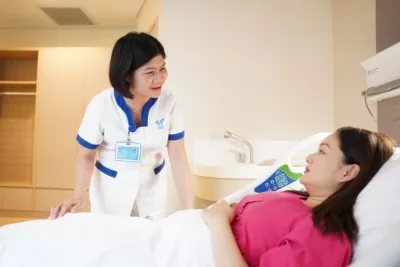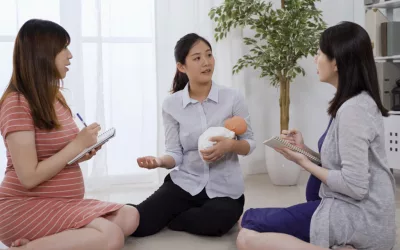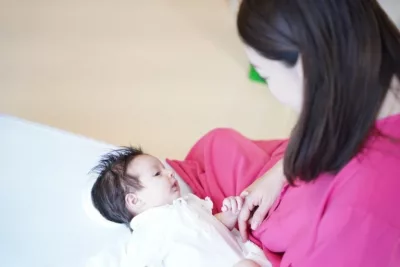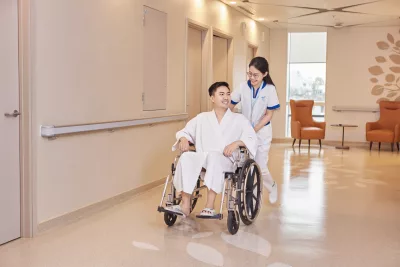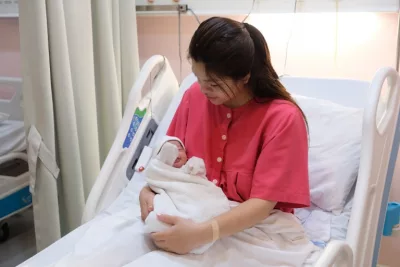What Is Postpartum Chills? Understanding and Managing the Condition
What is the postpartum chill?
Postpartum chills refer to the sensation of feeling cold throughout the body or in specific areas, even when the environment is warm. This condition is relatively common and may significantly affect a mother’s physical comfort and emotional well-being, especially if it recurs frequently.
The duration of this sensation can vary among women, some may feel chills for just a few minutes, while others experience it for several hours or even an entire day. During an episode, mothers may also experience fatigue, headache, shivering, nasal congestion, fever, or sore throat, and require rest and warmth.
Some women may feel cold after exposure to cold air or when using cold water. However, the condition can worsen if associated with underlying health issues such as low blood pressure, infections, or fever.
Is postpartum chill dangerous?
While postpartum chills are usually not life-threatening, they can cause discomfort and negatively affect a mother’s mental state. When addressed with proper care, these chills often subside within a few days. However, if neglected, the condition may persist or develop into more serious complications.
If accompanied by high fever, abdominal pain, or foul-smelling vaginal discharge, it could indicate a more severe postpartum infection, which requires immediate medical attention.
Why do mothers experience chills after giving birth?
Several factors contribute to postpartum chills, including hormonal shifts, blood loss, improper postpartum care, and emotional stress.
1. Blood loss after delivery
Significant blood loss during childbirth especially during cesarean section or complicated deliveries can lead to a drop in body temperature, causing chills. Blood plays a key role in regulating body temperature, transporting oxygen, and supplying nutrients to cells. Excessive bleeding affects circulation, blood pressure, and heart rate, which intensifies the sensation of cold.
2. Hormonal fluctuations
Sudden hormonal changes are another common cause. During childbirth, oxytocin – a hormone responsible for uterine contractions and maternal bonding — is released in large amounts. After delivery, oxytocin levels drop abruptly, disrupting hormonal balance and potentially triggering chills. Women with complex labors or low oxytocin levels during pregnancy may be more susceptible.
3. Incorrect postpartum practices
Overly restrictive confinement practices such as avoiding showers, exposure to air, or dressing too warmly can weaken the immune system. When the body’s defenses are low, even minor temperature changes or exposure to cold can cause postpartum chills.
4. Emotional stress
The physical pain, sleep deprivation, anxiety about body image, and caring for a newborn can lead to chronic stress. Persistent stress weakens the immune system, making the body more vulnerable to cold-related symptoms. Additionally, bathing at night, exposure to cold drafts, or rain can contribute to the condition.
How to manage and prevent postpartum chills
Keep the body warm
The most essential step is maintaining warmth. Mothers should wear comfortable, layered clothing and use blankets during the postpartum period. Pay extra attention to commonly cold-sensitive areas such as the neck, hands, and feet. In cold weather, gloves, hats, and scarves can help shield against environmental cold. Only drink warm beverages and avoid cold food or drinks until fully recovered.
Maintain a nutritious diet
A diet rich in protein, vitamins (especially A and C), and minerals like iron and zinc supports recovery and strengthens immunity. Consume milk, yogurt, cheese, seafood (such as salmon and sardines), green leafy vegetables (like spinach and kale), beans, and fresh fruits.
Maintain hygiene and living space conditions
Good hygiene improves comfort and reduces infection risk. Ensure the living environment is dry, well-ventilated, and not exposed to direct drafts. Avoid using cold water for bathing, and always dry off promptly to avoid chilling.
Get enough rest and manage stress
Sleep and relaxation are vital to restoring immune function. A well-rested body recovers more efficiently and is less prone to complications. Creating a peaceful, supportive environment helps relieve stress and supports emotional well-being.
Practice gentle exercise
Postpartum-friendly exercises like light walking, yoga, or stretching can enhance blood circulation and stabilize body temperature. Avoid overexertion in the early recovery period and only start physical activity with your doctor’s approval.
Schedule regular check-ups
Regular medical check-ups are essential. If symptoms such as prolonged chills, fever, or fatigue persist, consult a healthcare provider. Early detection and intervention can prevent complications and support faster recovery.
Conclusion
After childbirth, a mother’s body faces numerous challenges, including postpartum discharge, headaches, joint pain, dizziness, and even mental health issues such as postpartum depression. If left unaddressed, these symptoms may lead to more complex health concerns.
At Hanoi French Hospital, the maternity department is renowned for its high-quality services. With an experienced medical team and modern facilities, we provide comprehensive maternal care for a safe and healthy pregnancy and delivery.
Explore our full maternity care program, designed with scientific, step-by-step support from pregnancy to childbirth, for complete peace of mind.
Note: This content is for informational purposes only and should not replace professional medical advice. If you notice any unusual signs, consult a trusted healthcare provider and follow your doctor’s recommendations.
Postpartum chills are common but manageable. With proper care, warmth, and timely health monitoring, mothers can recover quickly and avoid unnecessary risks. Always prioritize your well-being and seek medical support when needed.

